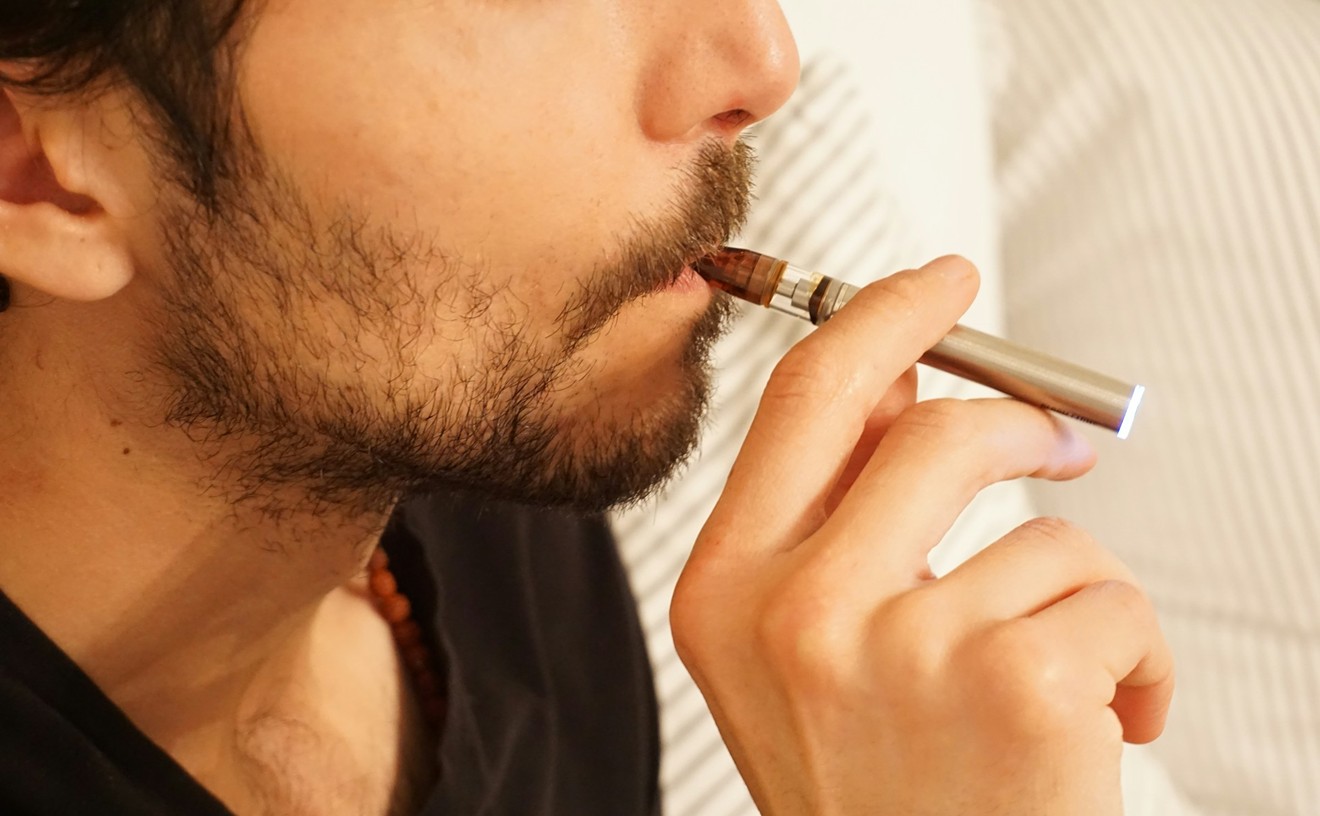Now that 4/20, America's unofficial cannabis holiday, has finally arrived, various law enforcement and safety agencies want to remind your resin-coated brain of one thing: Don't drive stoned.
As April 20 approached, the Colorado State Patrol, the Denver Police Department, the Colorado Department of Transportation, RTD, Lyft, Uber, Mothers Against Drunk Driving, Property Casualty Insurers Association of America and even the pot industry itself began warning drivers of the dangers of driving stoned. And while stats on how many people actually drive stoned are hard to come by, recent CSP testimony at the Colorado Capitol and several surveys suggest that not enough cannabis consumers are taking road safety seriously.
Preliminary data from CDOT's anonymous Cannabis Conversation surveys indicates that 69 percent of cannabis consumers have driven under the influence of the plant at least once in the past year, while 27 percent admit to driving high almost daily, according to the department. A study by the Colorado State University Department of Psychology found that around 20 percent of legal pot employees consumed cannabis while driving on the way to work. But a poll conducted by the Property Casualty Insurers Association of America showed that a majority of participants believed using cell phones for social media and texting while driving was more dangerous than driving while high.
To fight the perception that driving stoned isn't dangerous, organizations are now spreading awareness and fighting hazardous driving decisions in a number of ways. On top of the usual warning from DPD on 4/20, both Lyft and Uber are offering discounts to persuade red-eyed drivers to use their services, and CDOT will be at the Civic Center's Mile High 420 Festival throughout the day to chat with attendees about their views relating to stoned driving, as well as share some of the perspectives the department's campaign has gathered.
“What this information tells us is that Colorado still has a lot of work to do in order to change behavior,” says CDOT spokesman Sam Cole. “CDOT has been successful in raising awareness about the laws and consequences of driving high, but now our big focus is on how we can turn that awareness into action and increase safety on our roadways.”
Cole has expressed frustration in the past regarding his department's lack of success at moving the needle quickly enough in the right direction, but he thinks recent partnerships with Lyft and the cannabis industry will help generate more tangible results. Lyft partnered with CDOT last year for a promotional discount to discourage marijuana consumers from driving high, offering ride discounts once a month through April 2018 and 20 percent off rides for concert-goers at the 420 on the Block festival. And to connect even more with consumers, the ride-sharing company teamed up with the cast of Super Troopers for a PSA about legal pot use.
Uber is also offering discounts for anyone looking to stay away from the wheel, partnering with Native Roots, Colorado's largest dispensary chain with twenty locations, to give out ride discounts for anyone who visits one of its locations on 4/20. And both Uber and the dispensary chain have joined forces with CSP, RTD and MADD to publicly encourage cannabis users to take advantage of transportation options.
Dave Britton, general manager of Uber's Denver region, says the company has worked with MADD since 2014 to decrease impaired driving. "Just like drunk driving, driving while high is dangerous and can lead to deadly consequences," he says. "It's 100 percent preventable."
According to CSP Chief Matt Packard, his department has investigated over 100 driving-while-high instances in Colorado so far in 2018, and what's making those drivers high is changing. A recent CSP study showed that seven out of ten impaired drivers in Colorado tested positive for more than one substance, such as alcohol, cannabis, prescription painkillers and other drugs.
"Call a friend, call a car, take the bus — whatever it takes," Packard says. "Just don't be that next story. Don't be that next image of impaired driving."
[
{
"name": "Air - MediumRectangle - Inline Content - Mobile Display Size",
"component": "12017618",
"insertPoint": "2",
"requiredCountToDisplay": "2"
},{
"name": "Editor Picks",
"component": "17242653",
"insertPoint": "4",
"requiredCountToDisplay": "1"
},{
"name": "Inline Links",
"component": "18838239",
"insertPoint": "8th",
"startingPoint": 8,
"requiredCountToDisplay": "7",
"maxInsertions": 25
},{
"name": "Air - MediumRectangle - Combo - Inline Content",
"component": "17261320",
"insertPoint": "8th",
"startingPoint": 8,
"requiredCountToDisplay": "7",
"maxInsertions": 25
},{
"name": "Inline Links",
"component": "18838239",
"insertPoint": "8th",
"startingPoint": 12,
"requiredCountToDisplay": "11",
"maxInsertions": 25
},{
"name": "Air - Leaderboard Tower - Combo - Inline Content",
"component": "17261321",
"insertPoint": "8th",
"startingPoint": 12,
"requiredCountToDisplay": "11",
"maxInsertions": 25
}
]












